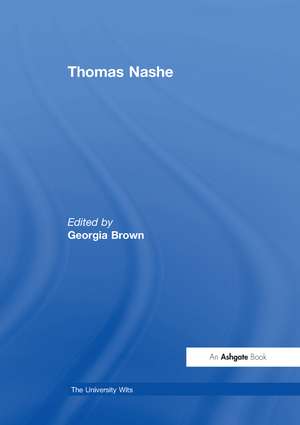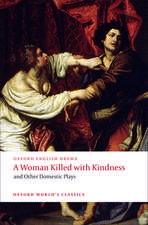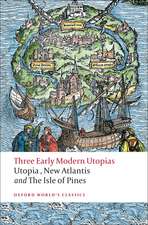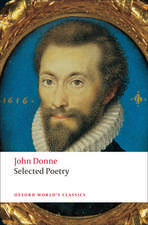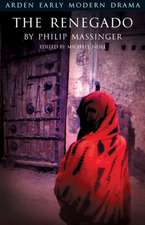Thomas Nashe: The University Wits
Editat de Georgia Brownen Limba Engleză Hardback – 28 mar 2011
Preț: 1978.64 lei
Preț vechi: 2657.98 lei
-26% Nou
Puncte Express: 2968
Preț estimativ în valută:
378.62€ • 396.30$ • 315.13£
378.62€ • 396.30$ • 315.13£
Carte tipărită la comandă
Livrare economică 01-15 aprilie
Preluare comenzi: 021 569.72.76
Specificații
ISBN-13: 9780754628538
ISBN-10: 0754628531
Pagini: 632
Dimensiuni: 169 x 244 mm
Greutate: 1.43 kg
Ediția:1
Editura: Taylor & Francis
Colecția Routledge
Seria The University Wits
Locul publicării:Oxford, United Kingdom
ISBN-10: 0754628531
Pagini: 632
Dimensiuni: 169 x 244 mm
Greutate: 1.43 kg
Ediția:1
Editura: Taylor & Francis
Colecția Routledge
Seria The University Wits
Locul publicării:Oxford, United Kingdom
Cuprins
Contents: Introduction; Part I Nashe and Early Modern Literature: Contexts, Relationships, Influence: The extemporal vein: Thomas Nashe and the invention of modern narrative, Kiernan Ryan; 'London' and 'The Wits' Charles Nicholl; Shakespearean grotesque: the Falstaff plays, Neil Rhodes; The uses of resentment: Nashe, 'Parnassus', and the poet's mystery, Laurie Ellinghausen. Part II Earlier Works: 'The Anatomie of Absurditie': a study in literary apprenticeship, Don Cameron Allen; The influence of the Marprelate controversy upon the style of Thomas Nashe, Travis L. Summersgill; The miseries of authorship and 'Pierce Penilesse', G.R. Hibbard; 'Pierce Penilesse', the bankrupt's carnival, Lorna Hutson; 'Christs Teares': Nashe's 'forsaken extremities', Katherine Duncan-Jones; Summer fruit and autumn leaves: Thomas Nashe in 1593, Philip Schwyzer; Prototypes of festive comedy in a pageant entertainment: 'Summer's Last Will and Testament', C.L. Barber; 'Summer's Last Will and Testament': revels' end, Marie Axton. Part III Later Works, Including the Quarrel with Gabriel Harvey: Nashe and the poetics of obscenity: 'The Choise of Valentines', M.L. Stapleton; Transmuted into a woman or worse: masculine gender identity and Thomas Nashe's Choice of Valentines, Ian Frederick Moulton; 'All this tractate is but a dream': the ethics of dream narration in Thomas Nashe's The Terrors of the Night, Per Sivefors; The patrimony of learning, Alexandra Halasz; Day labor: Thomas Nashe and the practice of prose in early modern England, Steve Mentz; Nashe's red herring: epistemologies of the commodity in Lenten Stuffe, Henry S. Turner; Rhetoric and truth, Jonathan V. Crewe. Part IV The Unfortunate Traveller (1594): Thomas Nashe and the functional grotesque in Elizabethan prose fiction, Barbara C. Millard; Nashe's 'The Unfortunate Traveller': the 'newes of the maker' game, Margaret Ferguson; Inside the outsider, Nashe's 'Unfortunate Traveller' and Bakhtins polyphonic novel, Ann Rosalind Jones; The epistemological challenge of Nashe's 'The Unfortunate Traveller', Raymond Stephanson; 'The Unfortunate Traveller' in (and out of) France, Richard Hillman; How to turn prose into literature: the case of Thomas Nashe, Stephen Guy-Bray; Name index.
Notă biografică
Georgia Brown, Early Modern Research Centre, University of Reading, UK
Recenzii
'...this book is a very valuable introduction and contribution to them [Nashe studies].' Sixteenth Century Journal
Descriere
The essays selected for this volume present diverse approaches to key issues in Nashe studies. All Nashe's texts are covered, as are his relationships with contemporaries such as Shakespeare. The introduction analyses the critical approaches, locating them in the history of Nashe criticism, and argues that Nashe's importance to Renaissance studies lies in his anomalousness, as he forces us to rethink the Renaissance.
